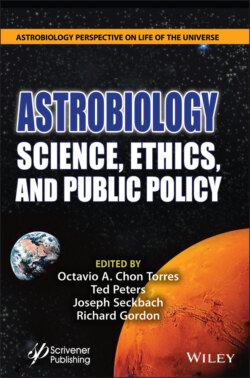Читать книгу Astrobiology - Группа авторов - Страница 35
2.3.4 Who’s Responsible for Space Debris?
ОглавлениеAccording to NASA’s count, 22,000 pieces of space junk in the form of defunct human made objects are orbiting Earth. We have turned our upper atmosphere into a trash dump for nonfunctioning space craft, abandoned launch vehicle stages, and fragments of unusable satellites. Do we want to pollute circumterrestrial space just as we have befouled our terrestrial nest? [2.45] [2.77].
The problem with our orbiting landfill is not merely that it is ugly. It is also dangerous. It risks danger to future space flights and future satellites. The Kessler Syndrome, named after NASA scientist Donald J. Kessler, proffers a scenario: debris in low Earth orbit (LEO) may become sufficiently dense that collisions between objects could cause a cascade where each collision would generate smaller particles in increased number; and the increased number of objects would then increase the number of collisions. The cascade would pulverize anything that comes within its region. The LEO region would become impassable for future launch vehicles.
To date, no one has been held financially responsible for space junk. Those who make profits or who otherwise gain from sending this material into space are not required to recycle or dispose of their waste. Space waste accumulates, but nobody is required to pay for cleaning it up. Nations or corporations treat the Greater Earth as their ashtray, as a public trash dump. Follow the money.
If we define Greater Earth as a part of the galactic commons, then we find ourselves already beset with a classic moral problem: those with power and influence utilize common space for their own profit while the population as a whole absorbs the cost of deterioration or degradation of what is publicly shared. If and when Earth’s planetary society consolidates its diversity into a single community of moral deliberation, then responsibility will need to be parsed and parceled according to a renewed principle of distributive justice.
The European Space Agency has set up a Space Debris Office to coordinate research activities in all major debris disciplines, including measurements, modeling, protection, and mitigation, and coordinates such activities with the national research efforts of space agencies in Italy, the United Kingdom, France and Germany. Together with ESA, these national agencies form the European Network of Competences on Space Debris. In parallel, the Japan Aerospace Exploration Agency (JAXA) is testing to see if a tethering technique might begin the process of debris-gathering. What we are missing is a planetwide public policy regarding fiscal responsibility on the part of spacefaring parties.
